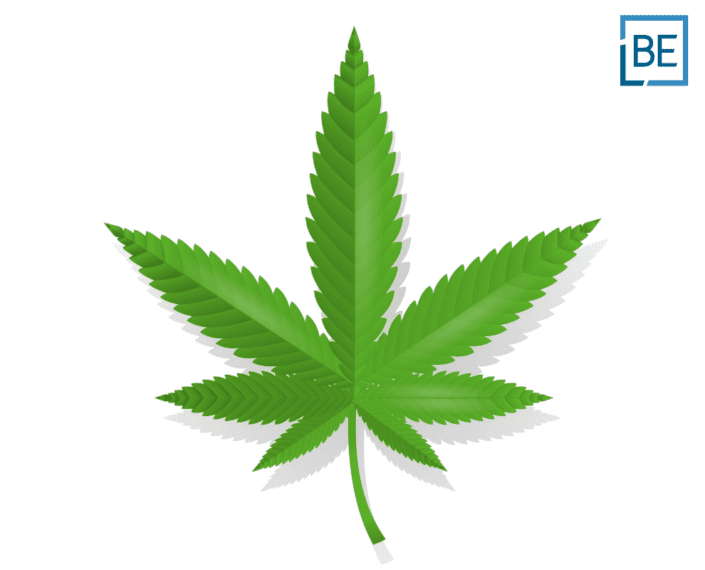legal
Guide de protection du droit d'auteur en Thaïlande : Protégez efficacement votre propriété intellectuelle
01/03/2023
Il est important de sécuriser vos créations par le droit d'auteur pour établir votre légitimité en tant que propriétaire et prévenir toute utilisation non autorisée à des fins commerciales. Protégez votre propriété intellectuelle de manière adéquate pour garantir le succès de votre entreprise.
Cet article examine les détails de la protection des droits d'auteur en Thaïlande.
Points clés
- Le droit d'auteur s'applique aux œuvres, qu'elles soient publiées ou non.
- Les domaines couverts comprennent la littérature, le théâtre, l'informatique, les arts, la musique, l'audiovisuel, le cinéma, le son et la radiodiffusion.
- Les éléments suivants ne peuvent bénéficier de protection : idées, procédures, systèmes, méthodes, concepts abstraits, principes, découvertes ou théories scientifiques ou mathématiques.
- La durée de protection est généralement la vie de l'auteur, suivie de 50 ans après son décès.
- Les reproductions, adaptations ou communications publiques non autorisées constituent des infractions au droit d'auteur.
Qu'est-ce que le droit d'auteur ?
Le droit d'auteur désigne les droits légaux accordés à un créateur sur son œuvre originale, conformément à la loi sur le droit d'auteur (1994). Il confère à l'auteur l'exclusivité pour réaliser certaines actions et utiliser sa propriété intellectuelle.
Il est important de noter que la protection du droit d'auteur ne couvre pas les éléments suivants :
-
- Les idées
- Les procédures
- Les processus
- Les systèmes
- Les méthodes d'utilisation ou de fonctionnement
- Les concepts abstraits, principes, découvertes, théories scientifiques ou mathématiques.
Quels types d'œuvres peuvent être protégés par le droit d'auteur ?
L'article 4 de la loi sur le droit d'auteur énumère les types d'œuvres suivants pouvant être protégés :
- Œuvres littéraires
- Œuvres dramatiques
- Programmes d'ordinateur
- Œuvres artistiques
- Œuvres de peinture ou de dessin
- Œuvres de sculpture
- Travaux de lithographie
- Travaux d'architecture
- Travaux photographiques
- Travaux d'illustration
- Œuvres d'art appliqué
- Œuvres musicales
- Œuvres audiovisuelles
- Œuvres cinématographiques
- Enregistrements sonores
- Travaux de radiodiffusion
Quels sont les types d'œuvres qui ne peuvent être protégés par le droit d'auteur ?
L'article 7 de la loi sur le droit d'auteur énonce les types d'œuvres suivants qui ne peuvent pas être protégés :
- Les nouvelles et les événements du jour, ainsi que les faits informatifs qui ne sont pas des œuvres littéraires, scientifiques ou artistiques.
- La constitution et la législation.
- Les règlements, arrêtés, notifications, ordonnances, explications et correspondances officielles des ministères, départements ou autres unités gouvernementales ou locales.
- Les décisions judiciaires, ordonnances, décisions et rapports officiels.
- Les traductions et les collections des documents mentionnés ci-dessus réalisées par les ministères, départements ou autres unités gouvernementales ou locales.
Quelle est la distinction entre une œuvre publiée et une œuvre non publiée en matière de droit d'auteur ?
En revanche, les œuvres publiées sont rendues disponibles au grand public par distribution ou publication, comme les livres, la musique, les films et les sites web.
Il convient de noter que la protection du droit d'auteur s'étend aussi bien aux œuvres publiées qu'aux œuvres non publiées. Cependant, les modalités d'enregistrement et la durée de protection peuvent varier selon le pays et le type d'œuvre.
Il convient de noter que la protection du droit d'auteur s'étend aussi bien aux œuvres publiées qu'aux œuvres non publiées. Cependant, les modalités d'enregistrement et la durée de protection peuvent varier selon le pays et le type d'œuvre.
Travaux non publiés
Pour qu'une œuvre non publiée soit protégée en Thaïlande, l'auteur doit être un ressortissant thaïlandais ou résider dans le pays. Si l'auteur est citoyen d'un pays membre de la Convention sur la protection du droit d'auteur ou réside dans un tel pays, son travail non publié est également protégé.
De plus, l'auteur doit résider principalement en Thaïlande ou dans un pays admissible et être explicitement désigné pour la création de l'œuvre.
Œuvres publiées
Une œuvre peut bénéficier de la protection du droit d'auteur si sa première publication a eu lieu en Thaïlande ou dans un pays participant à la Convention sur la protection du droit d'auteur.
Si la publication initiale a eu lieu dans un pays non signataire de la Convention, l'œuvre doit être publiée en Thaïlande ou dans un autre pays membre de la convention dans les 30 jours suivant sa première publication.
Quels sont les droits du titulaire du droit d'auteur ?
Selon l'article 15 de la loi sur le droit d'auteur, le titulaire du droit d'auteur bénéficie des droits exclusifs suivants :
- Reproduction ou adaptation.
- Communication au public.
- Le droit de location de l'original ou de copies d'un programme d'ordinateur, d'une œuvre audiovisuelle, d'une œuvre cinématographique et d'enregistrements sonores.
- Le droit de céder à d'autres personnes les avantages découlant du droit d'auteur.
- Le titulaire du droit d'auteur peut accorder des licences pour les droits mentionnés aux points (1), (2) ou (3), avec ou sans conditions, tant que ces conditions ne limitent pas de manière injuste la concurrence.
Comment enregistrer un droit d'auteur ?
Les demandes d'enregistrement de droits d'auteur en Thaïlande sont déposées auprès du Département de la propriété intellectuelle.
Les demandeurs doivent soumettre le formulaire Lor Khor 01 accompagnés des informations suivantes :
- Nom du titulaire du droit d'auteur
- Nom du mandataire
- Adresse de contact en Thaïlande
- Nom du créateur de l'œuvre ou pseudonyme
- Nom du cocréateur ou pseudonyme
- Titre de l'œuvre
- Type d'œuvre
- Propriété des droits d'auteur
- Type de création
- Lieu de création
- Année de création
- Annonce
- Notification/enregistrement des droits d'auteur à l'étranger
- Approbation de l'utilisation ou du transfert des droits d'auteur
- Publication des informations relatives au droit d'auteur
- Signature du titulaire du droit d'auteur ou de son mandataire
Les documents suivants sont également requis :
- Une copie certifiée conforme de la carte d'identité (pour les personnes physiques).
- Un certificat récent de l'entité juridique détenant les droits d'auteur, datant de moins de six mois (pour les entités juridiques).
- Un exemplaire de l'œuvre protégée par le droit d'auteur ou une photographie de celle-ci.
- Une procuration avec un timbre fiscal de 30 THB, accompagnée d'une copie certifiée conforme de la carte d'identité du mandataire.
Qu'est-ce qu'une violation du droit d'auteur ?
Une violation du droit d'auteur se produit lorsqu'une personne entreprend sans autorisation l'un des actes suivants à l'encontre d'une œuvre protégée :
- Reproduction ou adaptation.
- Communication au public.
Pour les œuvres audiovisuelles, cinématographiques, les enregistrements sonores et les programmes d'ordinateur, les actes suivants constituent également une violation du droit d'auteur :
- Reproduction ou adaptation.
- Communication au public.
- Location de l'original ou de copies d'une œuvre.
La contrefaçon de la radiodiffusion sonore et vidéo implique les actions suivantes :
- La réalisation totale ou partielle d'une œuvre audiovisuelle, cinématographique, d'un enregistrement sonore ou d'une œuvre de radiodiffusion sonore et vidéo.
- La rediffusion totale ou partielle.
- La diffusion publique d'une œuvre de radiodiffusion sonore et vidéo en échange d'une rémunération ou d'autres avantages commerciaux.
Existe-t-il des exemptions en cas de violation du droit d'auteur ?
L'article 32 de la loi sur le droit d'auteur établit des cas où les actions suivantes contre une œuvre protégée ne sont pas considérées comme une violation du droit d'auteur :
- La recherche ou l'étude de l'œuvre sans intention de bénéfice personnel.
- L'utilisation à des fins personnelles ou pour le bénéfice de l'utilisateur, de sa famille ou de ses proches.
- Le commentaire, la critique ou l'introduction de l'œuvre avec reconnaissance de la propriété du droit d'auteur.
- La diffusion d'informations par les médias avec mention de la propriété des droits d'auteur.
- La reproduction, l'adaptation, l'exposition ou la présentation dans le cadre de procédures judiciaires ou administratives par des fonctionnaires autorisés ou pour rendre compte de leur résultat.
- La reproduction ou adaptation par un enseignant à des fins pédagogiques, à condition qu'il ne s'agisse pas d'un acte lucratif.
- La reproduction ou adaptation partielle d'une œuvre par un enseignant ou un établissement d'enseignement pour distribution aux élèves, sans but lucratif.
- L'utilisation de l'œuvre dans le cadre d'un examen.
En outre, une citation, un extrait, une copie, une imitation ou une référence en partie et à partir d'une œuvre protégée par le droit d'auteur, avec mention du propriétaire, n'est pas considérée comme une violation du droit d'auteur.
Quelle est la durée de la protection du droit d'auteur ?
La protection du droit d'auteur s'applique à une œuvre pendant toute la durée de vie de l'auteur et pendant 50 ans après son décès.
Pour certaines œuvres, la protection du droit d'auteur dure 50 ans à partir de la première publication :
- Photographies
- Œuvres audiovisuelles
- Œuvres cinématographiques
- Enregistrements sonores
- Œuvres de radiodiffusion audio et vidéo
Pour les œuvres d'art, la protection du droit d'auteur est de 25 ans, mais si elles sont publiées, elle dure 50 ans à partir de la première publication.
Comment Belaws peut-il vous aider ?
Vous pouvez vous adresser directement à l'un de nos experts pour obtenir plus d'informations sur la protection des droits d'auteur en Thaïlande.
Cet article est publié à titre d'information uniquement et ne constitue pas un avis juridique.
Nos consultations durent jusqu'à une heure et sont menées par des juristes experts qui parlent couramment l'anglais, le français et le thaï.
Les consultations peuvent être organisées sur WhatsApp ou sur le Logiciel de Vidéoconférence de votre convenance. Une consultation avec l’un de nos experts juridiques est sans aucun doute le meilleur moyen d’obtenir toutes les informations dont vous avez besoin et de répondre à toutes les questions que vous pourriez avoir sur votre nouvelle entreprise ou votre projet.
150 USD
Jusqu'à 1 heure
Paiement en ligne (Paypal ou carte bancaire)
Les consultations juridiques peuvent être menées en anglais, en français ou en thaï.
Les consultations juridiques sont assurées par des des avocats expérimentés dans les domaines concernés.
Questions fréquemment posées
Puis-je enregistrer une société par action simplifiée à mon domicile ?
Changer le lieu d'enregistrement d'une entreprise en Thaïlande peut sembler simple, mais il existe en réalité deux procédures distinctes qu'il convient de respecter.
La première procédure s'applique lorsque l'entreprise déménage dans une autre localité au sein de la même province.
La seconde procédure s'applique lorsque l'entreprise déménage dans une autre province de Thaïlande.
Si l'entreprise déménage dans la même province, le changement doit être enregistré auprès du département des recettes. En outre, le Département du développement des entreprises (DBD) et le Fonds de Sécurité sociale (SSF) doivent également être informés du changement.
Il est important de mettre à jour l'adresse sur tous les permis de travail, licences commerciales et autres licences pertinentes. En outre, la banque utilisée par l'entreprise doit être informée du changement d'adresse.
Changement d'adresse d'une entreprise dans une autre province
Le changement d'adresse de l'entreprise dans une autre province nécessite que l'entreprise remplisse plusieurs conditions.
Tout d'abord, l'entreprise doit annoncer le déménagement dans le journal local et dans d'autres médias.
La société devra également modifier l'acte constitutif de la société. La modification de l'acte constitutif nécessitera une assemblée extraordinaire des actionnaires. Pour ce faire, le directeur doit envoyer une lettre aux actionnaires dans les 14 jours précédant la date de l'assemblée. Une fois que l'assemblée des actionnaires a approuvé le déménagement, celui-ci doit être enregistré auprès du département du développement des entreprises, du Ministère des Finances et du bureau de la Sécurité sociale.
L'adresse de la société doit également être modifiée sur les permis de travail des employés étrangers, et la banque qui a ouvert un compte bancaire pour la société doit également être informée.
Enfin, l'administration fiscale doit être informée 15 jours avant le déménagement.
Documents requis pour le changement d'adresse d'une entreprise en Thaïlande
Les documents requis pour la modification de l'adresse du siège social d'une entreprise comprennent :
- Copies de la carte d'identité ou du passeport du directeur.
- Copies de l'attestation de TVA de l'entreprise.
- Copies de la déclaration sous serment de l'entreprise.
Documents à soumettre par le propriétaire du bâtiment du bureau :
- Copie du Tabien Baan (livret de maison) du bâtiment du bureau.
- Copie de la lettre de consentement délivrée par le bâtiment du bureau à l'entreprise.
- Preuve de propriété du bâtiment du bureau (par exemple, permis de construire, contrat de vente de la maison et demande de numéro de maison).
- Copie de l'emplacement du bâtiment du bureau.
- Photographies du bureau et de l'enseigne de l'entreprise.
Qu'est-ce que l'enregistrement des ménages en Thaïlande ?
En général, les copropriétés récemment construites précisent dans leur règlement que leurs unités ne peuvent pas être utilisées pour l'enregistrement d'une société.
Toutefois, certaines copropriétés plus anciennes sont plus souples. Pour en avoir le cœur net, vous devrez vous adresser à la personne morale au sein du condo en question. Si vous êtes locataire, vous devrez par ailleurs demander l'autorisation à votre propriétaire.
Si vous possédez une maison, il est généralement possible de l'utiliser pour enregistrer une société. Si votre maison fait partie d'un complexe, comme un condo, vous devez vérifier le règlement du complexe pour savoir si c'est possible.
Veuillez noter qu'il est obligatoire d'afficher le nom complet de l'entreprise à côté de l'entrée de la propriété.
L'utilisation d'une adresse personnelle pour enregistrer une société est souvent considérée comme pratique et économique. Toutefois, cela peut entraîner la visite de votre domicile par les autorités, car il s'agit également d'un local commercial.
Articles connexes
Abonnez-vous aujourd'hui
Abonnez-vous aujourd'hui
À notre newsletter pour les dernières actualités juridiques
en Asie du Sud-Est, les mises à jour de Belaws et
les offres spéciales sur nos services.
To our newsletter today for all the latest legal news in South East Asia,
Belaws updates and special promotions on our services.







